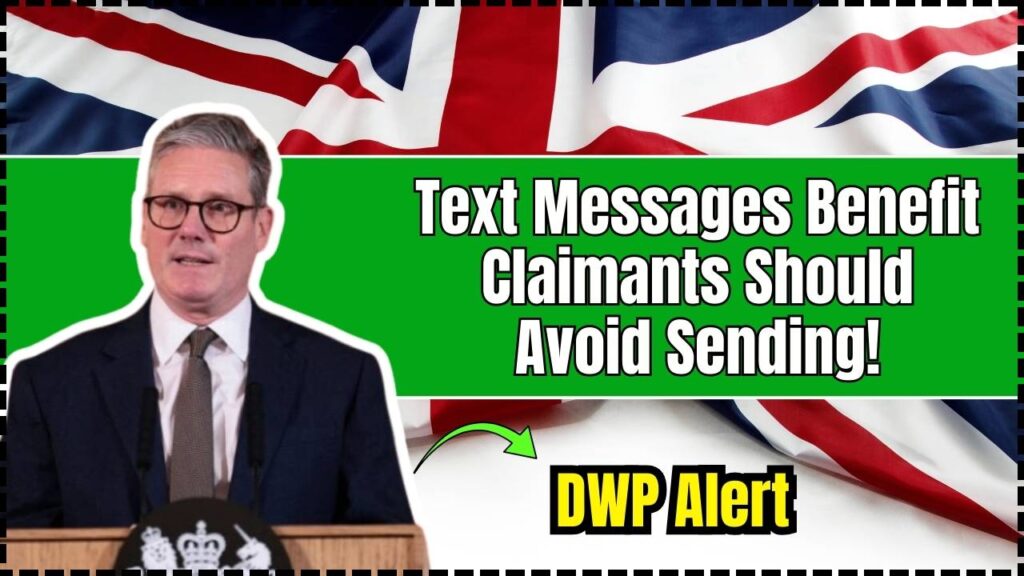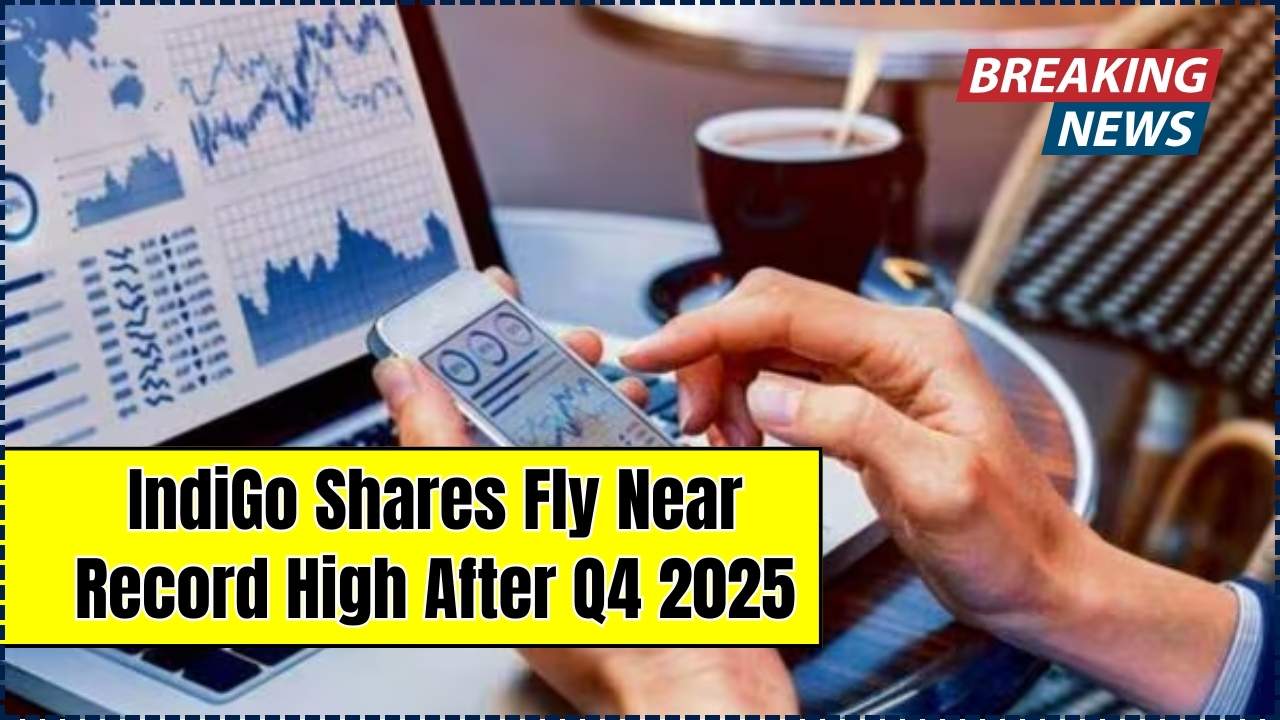DWP Alert: If you’re a UK benefit claimant, there’s a new DWP alert you must pay attention to. In 2025, scammers are ramping up efforts to impersonate the Department for Work and Pensions (DWP) by sending fake text messages. These scams are not only deceptive but potentially dangerous, tricking people into handing over sensitive personal and financial information. Knowing which messages to avoid can help you stay safe and protect your identity, finances, and benefits.

The DWP has issued an official warning advising claimants not to respond to certain types of text messages. These fraudulent communications are becoming increasingly convincing, often imitating real government updates with official-sounding language, logos, and web addresses that look similar to GOV.UK domains. In this article, we’ll break down the top 3 scam text messages to avoid, explain why they’re dangerous, and provide clear, actionable steps to protect yourself and others.
DWP Alert
| Aspect | Details |
|---|---|
| Scam Types | Winter Fuel Allowance texts, Cost of Living payment phishing, NI contribution alerts |
| Warning Issued By | Department for Work and Pensions (DWP), North East Lincolnshire Council, Disability Sheffield |
| Reporting Method | Forward to 7726 (SPAM), report to Action Fraud |
| Legit DWP Site | https://www.gov.uk/government/organisations/department-for-work-pensions |
| Recent Activity | Scam texts reported since late 2024 and increasing through early 2025 |
| Public Risk | Over £13 million lost in SMS-related fraud in 2024 |
| Key Tip | DWP never asks for personal or financial info via text message |
The DWP’s alert is a timely reminder that scammers are becoming increasingly creative and convincing. While technology helps us stay connected, it also creates opportunities for fraud. As a benefit claimant—or someone supporting a claimant—it’s important to stay informed, alert, and skeptical of any communication asking for sensitive information.
Whether it’s a fake Winter Fuel Allowance offer, a Cost of Living payment prompt, or a false NI contribution inquiry, take action: don’t engage, report it, and spread awareness. Scam prevention starts with knowledge—and now you have the facts to stay safe.
Why This DWP Alert Matters
The rise in digital communication has made it easier for government departments like the DWP to keep people informed. But it’s also given scammers a new gateway. Digital fraud is no longer rare or random—it’s a daily reality. In 2024 alone, more than 14,000 cases of text-message fraud were reported to Action Fraud, with an estimated financial loss exceeding £13 million. Many victims were vulnerable benefit claimants who mistook fraudulent texts for real DWP communications.
The consequences can be devastating. Victims often lose access to their bank accounts, miss out on legitimate benefits, or experience significant emotional distress. By raising awareness and promoting prevention, the DWP hopes to reduce the frequency and impact of these scams. Below are the three most common and harmful types of scam texts currently circulating in the UK.
1. Winter Fuel Allowance Scams
What the Message Might Say:
“DWP Benefits Officers are issuing winter fuel payments. You are eligible to receive £300. Please confirm your application before the deadline.”
Scammers exploit seasonal needs to trick people. During the winter months, when energy costs spike, a message about extra government support sounds credible. Fraudsters know that many vulnerable households are counting on help.
Why It’s Dangerous:
- Scam links lead to counterfeit websites that mirror official GOV.UK pages.
- Victims may unknowingly give away sensitive information like National Insurance numbers, bank credentials, or even passport details.
- These details can then be sold on the dark web or used to apply for credit or benefits fraudulently.
What You Should Do:
- Avoid clicking any link unless you’re 100% sure of the source.
- Do not reply—this confirms to scammers that your number is active.
- Forward the message to 7726, a free reporting service by mobile providers.
- Always refer to the official Winter Fuel Payment page for trusted information.
Real-Life Example:
North East Lincolnshire Council issued a public warning after local residents reported receiving fake Winter Fuel text messages. The texts falsely claimed to be from DWP Benefits Officers, prompting people to click fraudulent links.
2. Cost of Living Payment Phishing
What the Message Might Say:
“You qualify for a £650 Cost of Living Payment. Submit your bank details at gov-uk.help/costsupport”
This type of scam capitalises on DWP’s real Cost of Living payment scheme. By mimicking the style and tone of legitimate government communications, fraudsters aim to deceive people into giving up sensitive information.
Why It’s Dangerous:
- Fake URLs look deceptively similar to official sites but end in “.help”, “.support”, or other suspicious domains.
- Clicking the link may lead to malware downloads or phishing forms.
- Real DWP payments are issued automatically—you don’t need to provide extra details.
What You Should Do:
- Never provide details through a third-party website.
- If unsure, visit https://www.gov.uk/guidance/cost-of-living-payment to verify eligibility.
- Report phishing to Action Fraud and your mobile provider.
Tip:
If the URL doesn’t end in .gov.uk, it’s almost certainly a scam.
3. National Insurance (NI) Contribution Messages
What the Message Might Say:
“We will be calling to discuss your National Insurance record. Please confirm your availability.”
Scammers may try to appear helpful, suggesting the DWP wants to check your records. These types of messages aim to build trust and initiate a follow-up call, where scammers impersonate DWP agents.
Why It’s Dangerous:
- DWP does not schedule calls via text without prior contact.
- The scam often escalates to phone calls demanding payment or personal information.
- Victims may inadvertently give scammers permission to access benefits or bank accounts.
What You Should Do:
- Don’t respond or confirm anything.
- Check with the DWP directly using official contact channels.
- If you’ve already responded, monitor your finances and report any suspicious activity.
Recognising a Scam Text: Red Flags
Scammers use psychological tricks like fear, urgency, and confusion. Here’s how to spot a fake:
- The message includes urgent language, e.g., “Immediate action required.”
- It asks you to click a suspicious link or open an unfamiliar attachment.
- The sender ID looks like DWP but uses a personal or international number.
- You’re asked to confirm personal details, such as bank accounts or NI numbers.
- The message lacks official formatting or reference numbers.
- When in doubt, take a moment to pause and verify before reacting.
£450 Cost Of Living Payment In May 2025: Check Eligibility Criteria And When To Expect It!
£200 Summer Cost Of Living Payments Confirmed – Check Payment Details!
Loughborough University Offers Global Excellence Scholarship for 2025: Check Details!
DWP Alert Guide: What to Do If You Receive a Scam Text
- Do Not Engage: Don’t reply, click links, or open attachments.
- Take a Screenshot: Capture the entire message including the sender’s number.
- Forward to 7726: This will help your mobile provider investigate and block the number.
- Report to Action Fraud: Go to https://www.actionfraud.police.uk/ or call 0300 123 2040.
- Run a Device Check: Use antivirus software if you clicked a link.
- Contact Your Bank: If any financial info was shared, inform your bank immediately.
- Warn Others: Share the scam with family, especially those who may be more vulnerable.
DWP’s Official Communication Methods
It helps to know how the DWP actually communicates so you can spot a scam:
- DWP may send SMS reminders, but they will not ask for personal or financial details.
- Genuine texts often reference existing applications or appointments.
- Official phone numbers begin with UK codes and never request immediate payment.
- You can always verify any correspondence via GOV.UK.
If something doesn’t seem right, it probably isn’t. Trust your instincts and check independently.
FAQs On DWP Alert
Does the DWP send texts at all?
Yes, but never with links or requests for personal data. Messages typically relate to appointment reminders or document submission deadlines.
What if I already gave out my details?
Call your bank immediately and report the breach to Action Fraud. Also, notify the DWP to flag your account.
How can I educate others about this?
Print out warning flyers, share official articles, and encourage others to check information through the GOV.UK website. Raising awareness helps protect communities.
Are scam texts ever followed up with calls?
Yes. Many scams begin with a text and progress to phone calls. This layered approach increases the scam’s credibility.






